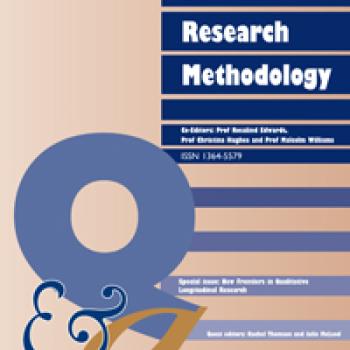
It is very likely that electronic means of data collection will become a standard for socioeconomic surveys in the near future. As surveys move from paper form to personal digital assistants (PDAs) or tablets there is a need to evaluate if such a shift will affect the quality of the data. To explore the potential biases that data collection through PDAs may generate, we use the third wave of Young Lives-Peru to randomly assign survey respondents between PDA-based questionnaires and paper-based questionnaires. The study shows that data collected through PDAs has a higher level of agreement when compared to paper-based responses. However, there are a number of situations where paper-based questionnaires do not easily translate to PDA-based questionnaires. In addition, the study highlights the need to improve training as different surveyor's characteristics (age, gender, education, etc.) may also be correlated with some observed differences between PDA and paper-based questionnaires.
Keywords: PDA, survey forms, report bias, Peru
The final published version of the article is available on the journal website.

It is very likely that electronic means of data collection will become a standard for socioeconomic surveys in the near future. As surveys move from paper form to personal digital assistants (PDAs) or tablets there is a need to evaluate if such a shift will affect the quality of the data. To explore the potential biases that data collection through PDAs may generate, we use the third wave of Young Lives-Peru to randomly assign survey respondents between PDA-based questionnaires and paper-based questionnaires. The study shows that data collected through PDAs has a higher level of agreement when compared to paper-based responses. However, there are a number of situations where paper-based questionnaires do not easily translate to PDA-based questionnaires. In addition, the study highlights the need to improve training as different surveyor's characteristics (age, gender, education, etc.) may also be correlated with some observed differences between PDA and paper-based questionnaires.
Keywords: PDA, survey forms, report bias, Peru
The final published version of the article is available on the journal website.

